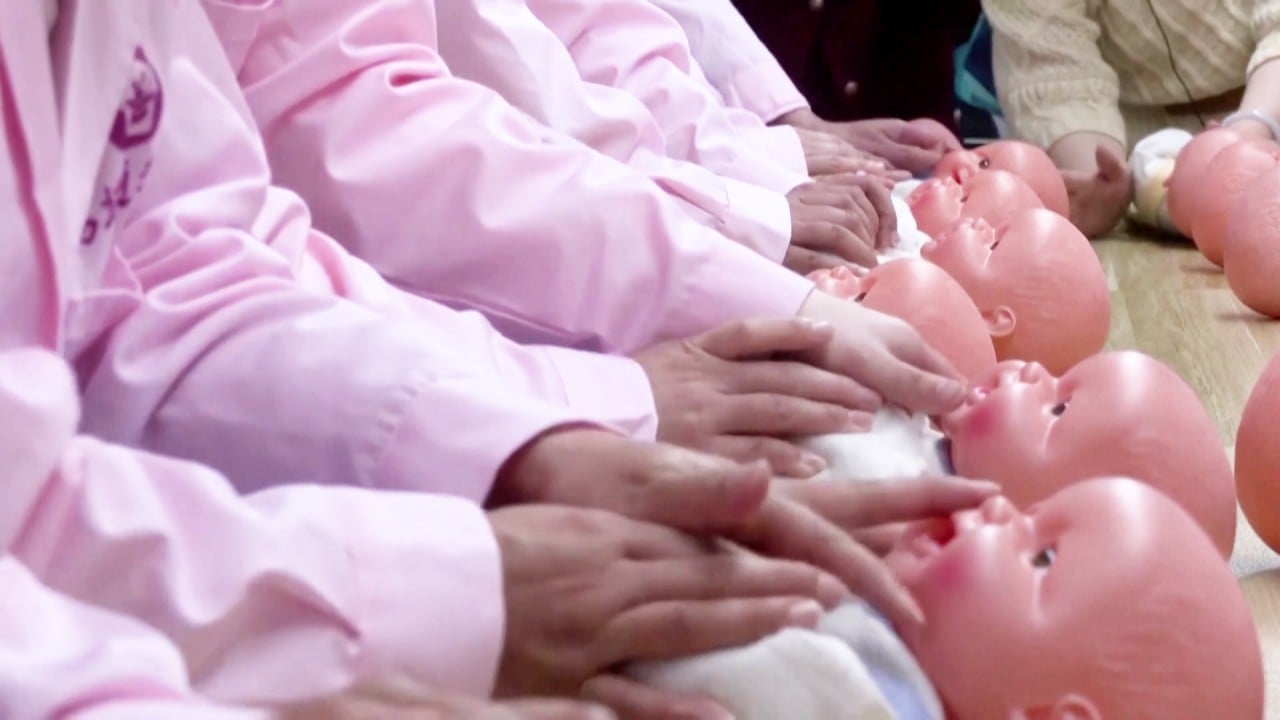China’s birth rate unlikely to benefit from influx of Filipino helpers, analysts say

The minimum wage is 2,690 yuan a month in Shanghai, the highest in the country.
“I’m also concerned about the safety of my kids [in the care of a foreigner] – should any incident happen, it will draw international attention,” he added.
“The domestic market is developing quite well and sufficient to meet demand. China has enough labour, and I don’t see a gap there for Filipino nannies to fill.”
The notion of introducing skilled foreign nannies to alleviate parental stresses and encourage births is one of many proposed solutions to a persistent problem. China’s population is shrinking, and with the decline comes questions over what effect the phenomenon will have on the country’s shaky economic growth.
South Korea’s introduction of Filipino helpers to the workforce is part of a plan to address its own birth rates – the lowest in the world. There, an average 0.72 children is expected over a mother’s lifetime in 2023, down from 0.78 the previous year.
A replacement fertility rate of 2.1 children per woman has been estimated for a country’s population to remain constant.
China and South Korea are among the world’s most expensive places to raise children, according to a study by the YuWa Population Research Institute published last year.
However, demographers say that introducing foreign domestic helpers on a similar scale is unlikely to be feasible in China.
“Per-capita income in the Philippines is much lower than in South Korea, so bringing in [cheaper] Filipino domestic workers can help reduce childcare costs for young South Koreans,” said He Yafu, an independent demographer based in Guangdong province.
Working four to eight hours a day, domestic helpers could earn as much as 2.38 million Korean won a month (US$1,781), while the minimum monthly wage for foreign domestic workers in Hong Kong is 4,870 HKD (US$624).
But in mainland China’s largest cities like Beijing and Shanghai, domestic workers can cost 7,000 yuan (US$982) a month or more.
Expecting that Filipino helpers will be cheaper than those from China is unrealistic, said Yuan Xin, vice-president of the China Population Association and a professor of demography at Nankai University in Tianjin.
Bringing a foreigner into the family introduces an adaptation issue right from the start
“Filipino helpers won’t lead to significantly lower costs, and it certainly won’t become widespread. It’s more of a luxury for the wealthy few.”
“Language, customs, beliefs and rights are all complex factors,” Yuan said. “Bringing a foreigner into the family introduces an adaptation issue right from the start.”
Source link




